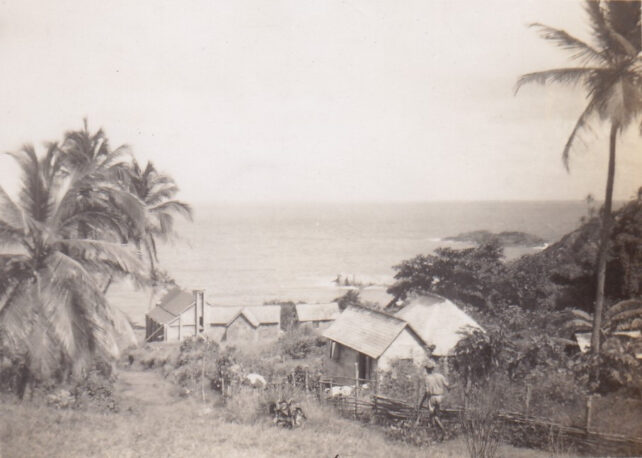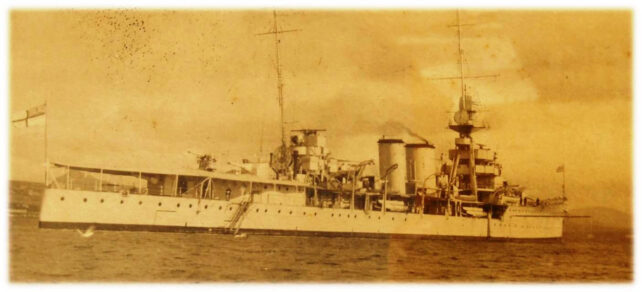
This week is being observed as Kalinago Week, commemorating what was popularly called the ‘Carib War’, now the Kalinago War. This was the first clash in a series of riots, strikes, and demonstrations that rocked the British West Indies during the 1930s. It was a mass demand for better conditions in the neglected colonies.
Early on the morning of 19 September 1930, five armed policemen under the command of a corporal entered the ‘Carib Reserve’ as it was called then, with orders to search for smuggled goods and arrest suspected persons. The Kalinagos were recovering from storm damage caused by the passage of a category 2 hurricane over Dominica almost three weeks before on 1 September; six people elsewhere on the island had been killed and much damage was done. Left to their own devices, in the days before official arrangements for hurricane relief, the Kalinagos had gone to the French islands to collect supplies.
Sixty years later, Nesta Frederick recalled the morning of 19 September to me; her account adds personal insight to the event, matching the evidence given before the Commission of Inquiry which investigated the circumstances surrounding the incident.
“At that time when they [the police] came we had a shop,” she said. “My mother, Mrs Tiwa Frederick, she had a shop, we owned a shop. So we used to have all the goods, like rum, tobacco. And at that time now the Caribs used to sell everything without license. Everything was free to sell… Early in the morning we were still sleeping, and we heard the noise and they [the police] came with my mother. My father wasn’t in. He had gone fishing, he liked to fish.
When they came they asked for the goods that was in the shop. So, my mother told them ‘well, go and search’, but she had hidden some of the things already.’
The situation quickly escalated. Kalinago Chief, Jolly John, and other headmen arrived on the scene. A crowd gathered and when the policemen tried to seize a quantity of rum and tobacco and take away suspects, a struggle ensued. Sticks, stones, and bottles were hurled at the police who retaliated by firing into the crowd and injuring four Kalinagos, two of whom died later from their wounds.
As Nesta Frederick recalled. “They fix up their business. They take my mother now as prisoner. And when the Caribs heard that, you know the Caribs already, everybody was uniting … ‘They not taking my family!’ You know, all those kind of things. ‘So let us do something!’ Immediately I heard in the bush ‘bow!’, they take cutlass and they start cutting
trees making some sticks and stones.
They then said ‘Let’s go!’ and as soon as one start, they hit a policeman, I can’t remember who was the first one. So those Caribs start to send stones and their Boutou after them. And right away the police start to shoot … the policemen
start shooting at the Caribs. Them fell down. There was Tilyson Bruney, the only one alive, Sanford, he died, and another one Royer Frederick, he died. They did not die at the same time.”
The police were forced to escape from the area and arrived at the Marigot police station eight miles away beaten and battered, with neither prisoners nor seizures.
“And the Caribs went after them now. They went right down to Hatton Garden. And all the way they were fighting with those policemen, beating them as they were going,” according to Nesta Frederick.
Without consulting the Executive Council, the administrator, EC Eliot, summoned the Royal Navy frigate HMS Delhi, which was cruising the Caribbean. At that time, and in the following decade, there was widespread civil unrest in the British Caribbean stemming from economic decline and crushing poverty among workers, particularly on those islands still dominated by sugar plantations. The Royal Navy was on hand to assist the local police forces in quelling any disturbance.
Administrator Eliot explained his actions in similar terms indicating that at the time the police force was small, and the defence force, according to him, was unreliable. So he telegraphed to HMS Delhi, which was then in Trinidad, for assistance.
A day later the warship appeared off the Kalinago Territory, and that night made a show of force by firing star-shells into the air and giving a display of searchlights. The Kalinagos, unaccustomed to these signals, rushed from their houses and took refuge in the woods.
Marines were landed the following day and assisted local police in the search for the ringleaders of the disturbance.
‘We sat down about seven to eight o’clock at home, and immediately we saw a light flash all about the boat. The Caribs run away now. They started running and saying that it is God that is coming … Yes they hid… they could see everything on the ground. A lady told me … that they light her as if it was day … In the morning we saw people coming out of the boat. That was the sailors… The men hid in the bush for about two to three days, they heard again that they were sending [star shells] behind them, so they did not come down until after four days when they were hearing nothing coming again.’

Text and photos courtesy of Dr. Lennox Honychurch

Wow, who would do that to people on their own land? Don’t answer that, we know.
This is exactly how British, Portugal, France Spain military with heavy canons did it on the Continent and down here to take People land by force and enslave them in name of their god, a ghost at that. Lots of bibles and vicas (Jesuit priests) on board those ships to bless captured palaces right before their soldiers loot, decalay the women and children then burn down the towns and cities.
This activity right there caused so much migration on the Continent when similarly at the sound of canons the people would flee to the woods by thousands, never to return: They got the Bible and the European(explorers) got the land. The Kalinago was no exception.
Really hope that this is just part one..
Well DNO Reader I do encourage you to do just a little research and write an account from your perspective. I’m sure it didn’t quite happen that way because these were some deadly people/pirates being romanticized here. Looks like the big bad Kalinago were beating the 4 cops al the way to Marigot, and big guns had to be called in (in their own home). hmm hmm.
Until the lion tells his own story every story favors the hunter.
Thanks that was riveting!!! Felt like Rastar was dere wi,,,
Is just soh Babylon does come and take Rastar Ganjah!!!
Doh worry man Fyah go Bon-Dem!!!
Two people gave you thumbs down so far, you just know they would support a repeat of the mega violence that Britain military (explorers ) is known for, with their ships and canons murdering, taking people land from India, Africa to Caribbean.
) is known for, with their ships and canons murdering, taking people land from India, Africa to Caribbean.
One historian wrote “explorers” went up the Indian River to ask Caribs permission to draw water. yeh right! The resulting carnage, We all know better than that.